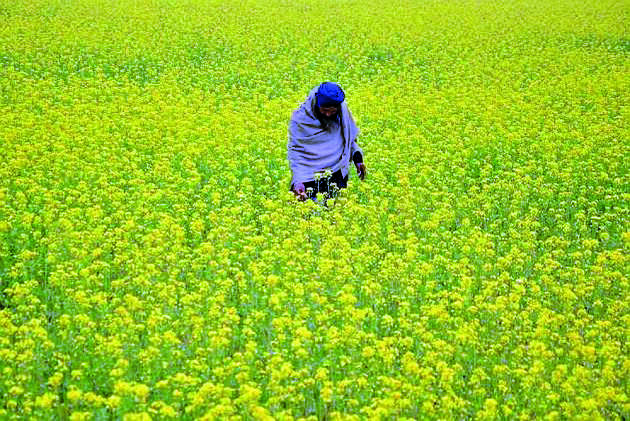Govt okays environmental release of GM mustard

New Delhi: In a major move aimed at making India a self-reliant in oilseed production, the government has approved environmental release of genetically modified (GM) mustard hybrid DMH-11, which is the first crop to get such a tag since Bt cotton years ago.
The move, which has paved the way for commercial release of GM mustard, would help in reducing dependency on oil-producing countries to meet the domestic demand of edible oil as India imports about 70 per cent edible oils primarily from the countries of Indonesia, Malaysia, Argentina, Brazil, Russia and Ukraine.
The clearance for field trial has been recommended by the environment ministry's Genetic Engineering Appraisal Committee (GEAC). The decision has come at a time when prices of cooking oils have witnessed a manifold increase.
According to minutes of the October 18 meeting, which was released on Wednesday, the GEAC, which the country's regulator for genetically modified organisms, recommended the "environmental release of mustard hybrid DMH-11 for its seed production and testing as per existing ICAR guidelines and other extant rules/regulations before commercial release".
"Further, to generate scientific evidences in Indian agro-climatic situation and also as a precautionary mechanism, the field demonstration studies with respect to the effect of GE mustard on honey bees and other pollinators, as recommended in the 136th GEAC meeting, shall also be conducted post-environmental release, simultaneously by the applicant, within two years under the supervision of ICAR," it read.
Patents on GM mustard are jointly owned by India's National Dairy Development Board (NDDB) and the University of Delhi under Prof Deepak Pental, who faced the charges of plagiarism.
Earlier, the GEAC, which was previously known as Genetic Engineering Approval Committee, had approved Bt Brinjal, but the commercial release was stayed by the then environment minister on the grounds of insufficient scientific evidence about safety.
Commenting on the development, a senior scientist of ICAR, who was also a member of committee, said, "It's a historic decision by the government in the direction of making India an AtmaNirbhar nation in oilseed production as the department has set a target to bring down the import of edible oil to zero by 2030."
"Commercial cultivation of GM crops would help in fostering food security due to increased yields and reduced costs for food production. It would also help in reducing the need for pesticides and resistance to pests and disease," the ICAR scientist said, adding that the decision is in line with Prime Minister Narendra Modi's commitment to promote biotechnology for the holistic growth of the agriculture sector.
In contrary to the ICAR official's claim, Kavitha Kuruganti, the founder of the Alliance for Sustainable and Holistic Agriculture, said, "The claim that GM mustard will increase yield is not supported by the data submitted by the crop developers to the regulator."
The GEAC said on the website that the recommendation to release GM mustard is for four years from the date of issue of the approval letter. The development of the hybrid and its post-release monitoring will be done by a team of senior subject matter and external experts, as per the GEAC order.
"Commercial use of DMH-11 hybrid shall be subject to Seed Act 1966 and related rules and regulations, its amendments and Gazette notifications from time to time as applicable," GEAC said in its minutes.
Mustard is cultivated in the country on around 6.5-7.0 million hectares of land by around 6 million farmers in Rajasthan, Haryana, Punjab and Madhya Pradesh. However, the per hectare yield of Indian mustard is very low at 1-1.2 tonnes per hectare. The global average is more than double at 2.3-3 tonnes per hectare.



